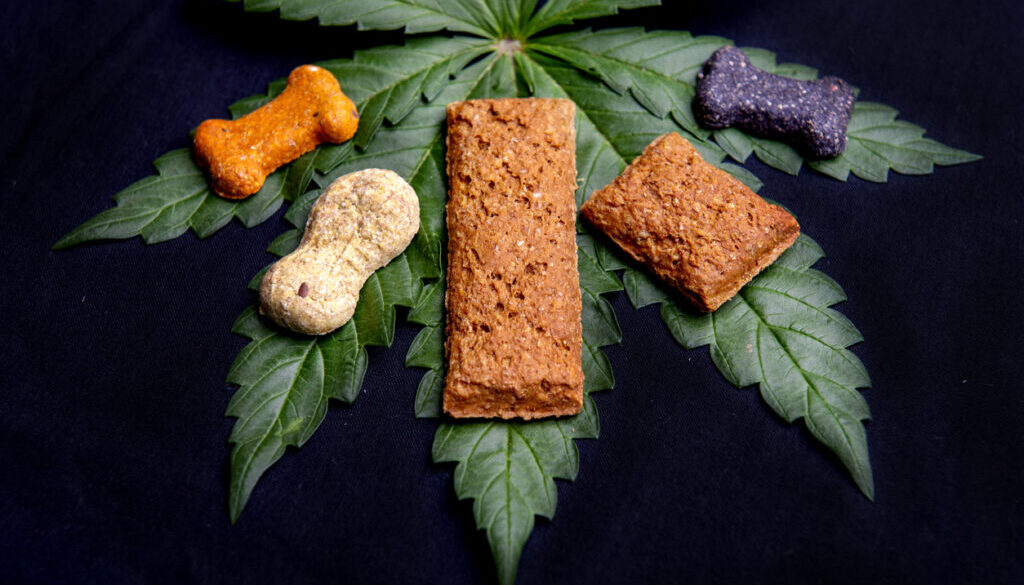Can I use CBD oil on my dog?
On August 8, we celebrate National CBD Day, and there are arguments for the benefits of humans using CBD oils on themselves. Though it might not cure an ailment, it might provide a palliative effect for your dog as well. However, CBD products intended for humans differ in dosage strength from those structured for animals.
Cannabidiol (CBD) is one of about 113 different chemical compounds that occur naturally in cannabis plants. It’s important to note it does not cause a euphoric high like its other variant tetrahydrocannabinol (THC). Where THC carries a psychoactive effect, CBD might actually counteract the high marijuana smokers receive. CBD works by either activating or blocking a specific group of nerve receptors, stimulating the endocannabinoid system.
But can – and should – you use CBD on your dog? In many states, veterinarians avoid openly discussing CBD use as they could lose licenses or be penalized by state boards. As such, they likely won’t recommend products or how or when to use them.
Little formal research exists on long-term effects of using cannabis on dogs, and under current laws, if you can get a prescription, it will have to be for you, the owner.
You might find products already on the market touting the advantages, but the FDA has yet to approve any of these for pet use, either in the drug or food category. However, some evidence suggests dogs benefit, especially when used to treat anxiety, pain, and arthritis. It can mitigate inflammation and reduce the severity of seizures as well.
In 2017, the AKC Canine Health Foundation funded and partnered with Colorado State University’s College of Veterinary Medicine and Biomedical Sciences. The aim: a clinical trial for a scientific study into using CBD for assessing its effectiveness on dogs with drug-resistant epilepsy. Approximately 30% of dogs do not respond to anti-epileptic therapies, prompting a need for better treatment options. This double-blind, placebo-controlled, randomized formal study should bring clarity to CBD’s anticonvulsant properties.
Products designed for human use differ in the dosage amount versus those intended for animal use. While nontoxic in high amounts, it can produce a sedative-like response and, occasionally, diarrhea. Other side effects can include dry mouth and lowered blood pressure.
Disclaimer
*Nothing in this content should be construed as medical advice from The Pet Professionals LLC, and we always encourage pet owners to fully and openly discuss their pet’s health and any concerns with their veterinarian.




